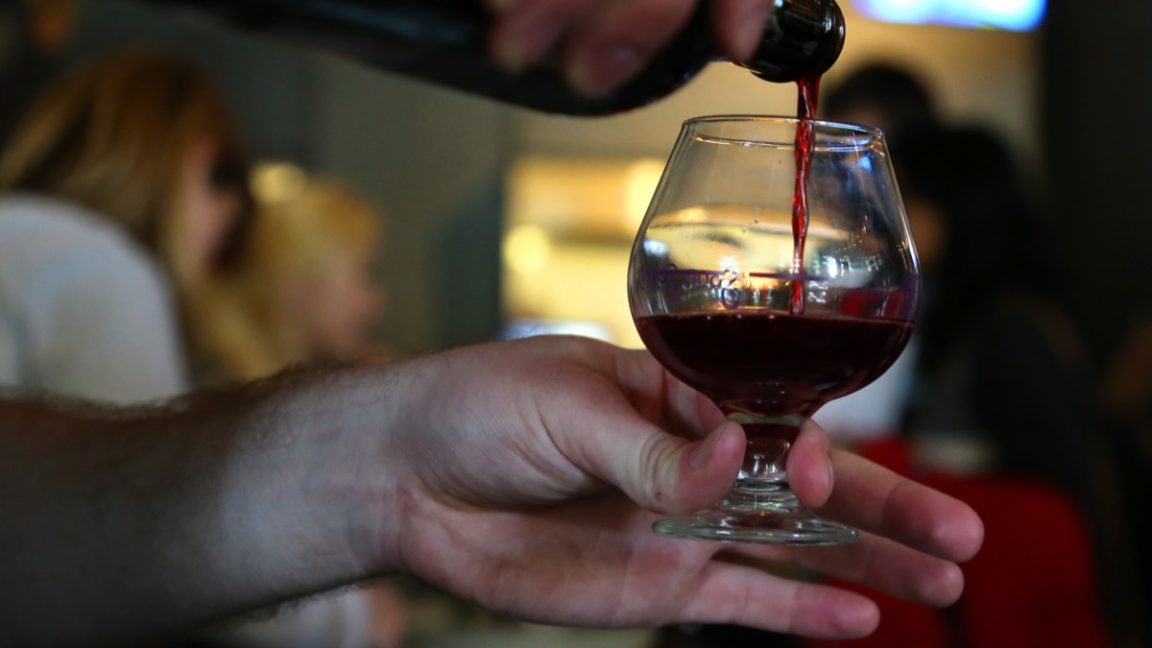
ARSTECHNICA.COM
Scientists found a faster way to brew sour beerwith peas
Pucker up Scientists found a faster way to brew sour beerwith peas The yeast cannot metabolize sugars derived from peas, thus promoting the growth of essential bacteria. Jennifer Ouellette Feb 5, 2025 8:00 am | 6 Credit: MediaNews Group/Bay Area News via Getty Images Credit: MediaNews Group/Bay Area News via Getty Images Story textSizeSmallStandardLargeWidth *StandardWideLinksStandardOrange* Subscribers only Learn moreDo you long for that tart fruity flavor of a sour beer but wish the complicated brewing process were faster? Norwegian scientists might have the answer: field peas, as well as beans and lentils. According to a new paper published in the Journal of Agricultural and Food Chemistry, experimental beers made with the sugars found in these foods had similar flavor profiles to your average Belgian-style sour beer, yet the brewing process was shorter with simpler steps.Sour beer is the beer enthusiasts alternative to champagne," said co-author Bjrge Westereng of the Norwegian University of Life Science. "By using sugars derived from peas that yeast cannot metabolize, we promote the growth of bacteria essential for producing sour beer.As previously reported, sour beer has been around for centuries and has become a favorite with craft brewers in recent years, although the brewing process can be both unpredictable and time-consuming. Brewers of standard beer carefully control the strains of yeast they use, taking care to ensure other microbes don't sneak into the mix, lest they alter the flavor during fermentation.Sour beer brewers use wild yeasts, letting them grow freely in the wort, sometimes adding fruit for a little extra acidity. Then the wort is transferred to wooden barrels and allowed to mature for months or sometimes years, as the microbes produce various metabolic products that contribute to sour beer's unique flavor.But it's a time-consuming process. For example, the wort must be left to cool overnight (not refrigerated) in sour beers made with wild yeasts, and sometimes multiple mashing vessels are required. Fermentation can take months or sometimes years. The whole process is tricky to control, and brewers don't always know exactly which compounds end up in the final product or how it will impact the overall flavor profile.There have been several prior studies of the components in finished sour beers, including in 2020, when chemists at the University of Redlands in California used liquid chromatography-NMR spectroscopy to track the various compounds that contribute to a given beer's distinctive flavor profile over time. Those compounds include acetic acid, lactic acid, and succinic acid, all of which are produced as yeast ferments, as well as trace compounds like phenolics, vanillin, and hordatines, which come from barley and are known to possess antimicrobial properties, as well as the amino acid tryptophan.A spoonful of pea sugarsWestereng and his collaborators focused on reducing the multi-step mashing process. Sour beer brewers typically use starch from raw wheat as a carbon source for the specialty yeasts they use. Westereng et al. previously experimented with using wood-derived xylo-oligosaccharides (prebiotic sugars) instead as a carbon source for lactic-acid brewing bacteria (LAB) since brewers' yeast doesn't degrade those carbohydrates. The resulting experimental sour beers weren't perfect but nonetheless were reasonably comparable to commercial sour beers, serving as a proof of principle.This time, the authors turned to peas, part of a plant group called pulses. Those pulses contain sugars called raffinose-family oligosaccharides (RFOs) that are equally appealing as a carbon source for lactic acid-brewing bacteria. The team extracted the sugars from field peas and brewed four experimental sour beers using three different LABs. Two of those beers contained the RFOs and two did not, and all four were fermented for 19 days. They then performed a chemical analysis, and a panel of trained testers sampled the sour beers.The results: The lactic acid-producing bacteria scarfed up all the pea sugars despite the shortened brewing time. And the sour beers brewed with pea sugars (RFOs) had more lactic acid, ethanol, and flavor compounds than those brewed without them. Furthermore, the sour beers brewed with pea sugars were rated as having fruitier flavors and higher acidity, while overall, the taste intensity was comparable to that of commercial beers.However, the best result was that the sensory panelists detected no trace of those undesirable "bean-y" flavors that have limited the use of pea-based ingredients in the past. "The beany flavor of pulse-derived ingredients is often considered a hurdle," the authors wrote. "Thus, the results of this study indicate that pea-derived RFOs can be exploited in unconventional ways to generate products with acceptable sensory properties."Journal, of Agricultural and Food Chemistry, 2025. DOI: 10.1021/acs.jafc.4c06748 (About DOIs).Jennifer OuelletteSenior WriterJennifer OuelletteSenior Writer Jennifer is a senior writer at Ars Technica with a particular focus on where science meets culture, covering everything from physics and related interdisciplinary topics to her favorite films and TV series. Jennifer lives in Baltimore with her spouse, physicist Sean M. Carroll, and their two cats, Ariel and Caliban. 6 Comments
0 Comments
0 Shares


